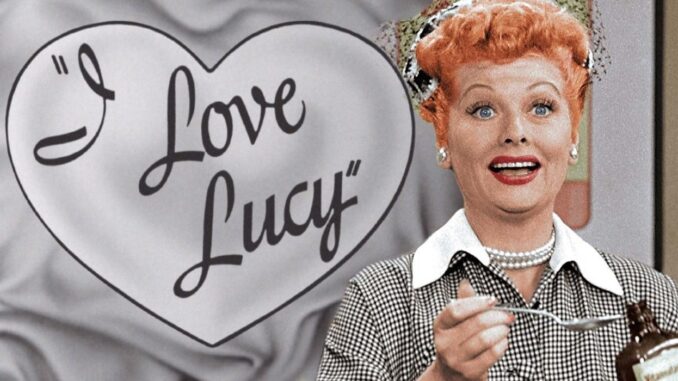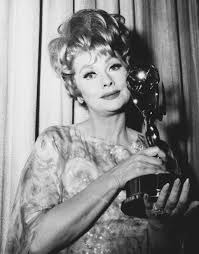
Introduction: A Star Who Changed the Game
What makes a television show truly timeless? For many, the answer lies in the groundbreaking comedy, “I Love Lucy,” starring the legendary Lucille Ball. More than just a sitcom, this series revolutionized the way television was produced, consumed, and appreciated. Lucille Ball’s influence on TV wasn’t just about making people laugh—it was about rewriting the rules of an entire industry.
The Golden Age of Television Meets a Comedy Queen
Setting the Stage for “I Love Lucy”
In the 1950s, television was still finding its footing as a medium. Radio dominated entertainment, and most TV programming followed a rigid, predictable formula. Then came Lucille Ball, a seasoned actress who brought her unique comedic style to the small screen.
A Revolutionary Concept
“I Love Lucy” wasn’t just another sitcom—it was the first to be filmed before a live studio audience using multiple cameras. This technique, pioneered by Ball and her then-husband Desi Arnaz, allowed for more dynamic storytelling and better production quality, setting a new standard for TV shows.
Breaking Barriers in Television
The First Interracial Couple on TV
Lucille Ball and Desi Arnaz broke barriers as the first interracial couple portrayed on American television. At a time when such representation was virtually nonexistent, their on-screen and off-screen chemistry challenged societal norms and opened doors for more diverse storytelling.
Lucille Ball as a Female Powerhouse
Ball wasn’t just the star of the show—she was also a producer. In an era when women were rarely in positions of power in Hollywood, Lucille Ball co-founded Desilu Productions, the company behind “I Love Lucy.” Her leadership paved the way for future female executives in the entertainment industry.
Innovations That Changed the Industry
The Birth of Syndication
Did you know that Lucille Ball and Desi Arnaz essentially invented TV syndication? By opting to film “I Love Lucy” in California and retain ownership of the episodes, they ensured the show could be re-aired for decades. This decision created a blueprint for reruns and residual income in television.
Filming in Front of a Live Audience
The laughter you hear in “I Love Lucy” is genuine. Filming in front of a live audience added authenticity to the show’s humor and created a more engaging experience for viewers.
Lucille Ball’s Comedic Genius
Physical Comedy at Its Finest
From stomping grapes to stuffing chocolates in her mouth at lightning speed, Lucille Ball’s physical comedy was unmatched. Her ability to transform mundane situations into laugh-out-loud moments made her a household name.
Timing Is Everything
Comedy is all about timing, and Ball mastered it. Whether delivering a punchline or reacting to a situation, her impeccable timing ensured every joke landed perfectly.

Cultural Impact of “I Love Lucy”
A Show for the Ages
Even decades later, “I Love Lucy” remains one of the most beloved sitcoms of all time. Its humor, heart, and groundbreaking storytelling continue to resonate with audiences worldwide.
Inspiring Generations of Comedians
Lucille Ball inspired countless comedians, from Carol Burnett to Tina Fey. Her fearlessness and innovation showed that women could dominate the world of comedy and beyond.
Lucille Ball’s Legacy in Modern Television
Desilu Productions: The Launchpad for Iconic Shows
After “I Love Lucy,” Desilu Productions went on to produce legendary series like “Star Trek” and “The Andy Griffith Show.” Ball’s business acumen ensured her impact extended far beyond her own show.
A Blueprint for Sitcoms
The multi-camera setup, live audience, and episodic storytelling of “I Love Lucy” became the gold standard for sitcoms. Shows like “Friends” and “The Big Bang Theory” owe much of their success to this format.
Why “I Love Lucy” Still Matters Today
Timeless Comedy
The humor in “I Love Lucy” transcends generations. Its clean, clever comedy continues to entertain audiences of all ages.
A Lesson in Resilience
Lucille Ball’s journey wasn’t without challenges. From struggling to find her footing in Hollywood to taking bold risks in television, her story is a testament to perseverance and innovation.
Behind the Scenes: Fun Facts About “I Love Lucy”
- The Vitameatavegamin Episode is considered one of the greatest moments in TV history.
- Desi Arnaz’s “Babalu” became a cultural phenomenon thanks to the show.
- The iconic heart logo at the beginning of each episode was a last-minute addition.
Lucille Ball’s Influence on Women in Entertainment
A Role Model for Aspiring Actresses
Ball proved that women could excel in every aspect of entertainment, from acting to producing. Her success shattered glass ceilings and inspired generations of women to follow in her footsteps.
Paving the Way for Female Executives
As the first woman to run a major TV studio, Ball’s influence extended beyond the screen. She showed that women could lead in a male-dominated industry.
Conclusion: A Legacy That Lives On
Lucille Ball didn’t just change television—she transformed the entertainment industry. Through her groundbreaking work on “I Love Lucy,” she proved that comedy could be smart, innovative, and inclusive. Her influence is still felt today, reminding us that true pioneers leave a legacy that endures.
FAQs
1. Why is “I Love Lucy” considered groundbreaking?
“I Love Lucy” revolutionized TV with its multi-camera setup, live audience, and syndication model, all of which became industry standards.
2. What made Lucille Ball a comedy icon?
Her mastery of physical comedy, impeccable timing, and ability to connect with audiences set her apart as one of the greatest comedians of all time.
3. How did Lucille Ball influence women in entertainment?
As a producer and studio head, she paved the way for women to take on leadership roles in Hollywood.
4. What is Lucille Ball’s legacy in modern TV?
Her innovative techniques and business strategies continue to shape how sitcoms are produced and distributed.
5. Is “I Love Lucy” still relevant today?
Absolutely! Its humor, heart, and groundbreaking storytelling make it a timeless classic that resonates with audiences even now.